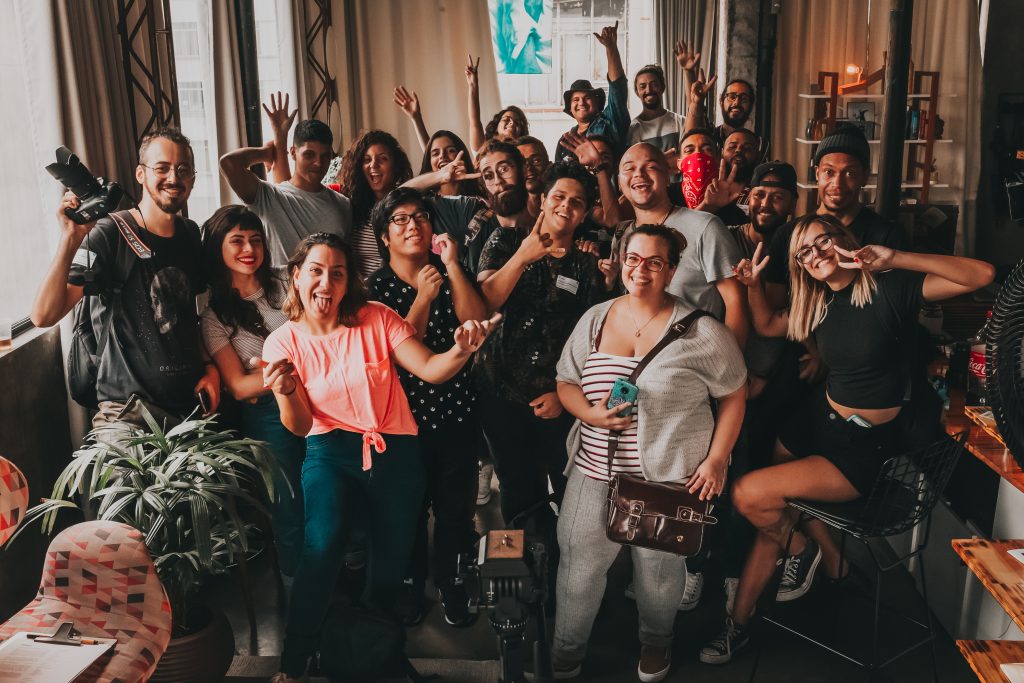October 20, 2023, by School of Medicine
Eczema is Different – Reflections on our first Community Q&A
 At the end of September, we embarked on a remarkable journey, hosting our inaugural online Community Q&A event. The goal was clear: to foster a sense of community among those touched by eczema and to facilitate open, honest conversations about living with this condition. Six incredible individuals, each with their own unique experiences, generously shared their personal stories, shedding light on various aspects of life with eczema which might not be covered in a consultation with a doctor.
At the end of September, we embarked on a remarkable journey, hosting our inaugural online Community Q&A event. The goal was clear: to foster a sense of community among those touched by eczema and to facilitate open, honest conversations about living with this condition. Six incredible individuals, each with their own unique experiences, generously shared their personal stories, shedding light on various aspects of life with eczema which might not be covered in a consultation with a doctor.
These were not healthcare professionals, but rather individuals who intimately understood the daily trials and tribulations of eczema. Their insights were not only fascinating but also incredibly diverse, touching on a wide array of topics that resonated with all of us who attended the event.
The discussions during the Q&A spanned an array of themes:
Getting that first diagnosis (speaker was Goldie Putrym): the initial confusion about what eczema is (and is not)
Understanding eczema (Tressa Davey): The speakers provided clarity on this topic, dispelling myths and misconceptions.
Holistic management of eczema (Shakeela Riaz): Managing eczema is about more than just creams. The speakers emphasized the holistic approach they’ve adopted, encompassing lifestyle changes, stress management, and self-care.
Systemic eczema treatments(Tim Burton): For those exploring treatments beyond topical creams, the speaker shared their personal experiences with systemic treatments, offering valuable insights into these options for more severe eczema.
Socializing with eczema (Devin Patel): Living with eczema can pose unique challenges when it comes to social interactions. The speaker shared their strategies for navigating social situations with confidence. Devin also gives a fascinating personal glimpse into the relationship between gut health and eczema shed light on how dietary choices might impact one’s condition.
How eczema can affect relationships with people (Tracy Owen): The speaker delved into the impact eczema can have on personal relationships, from family dynamics to romantic partnerships.
Another standout moment of the event was the breakout rooms. Attendees were able to meet with one of our speakers, creating a unique opportunity to share their own eczema journey and ask burning questions. These intimate conversations allowed for deeper connections and personalized insights.
If you haven’t already, we invite you to join our growing community at www.rapideczematrials.org. Through our community newsletter, you can stay updated on future Q&A sessions and let us know what topics you’d like to see covered in upcoming events. Together, we can continue to learn, share, and support one another on this eczema journey.
Written by Amanda Roberts, Co-lead for the Rapid Eczema Trials Project
If you would like to find out more about Rapid Eczema Trials, please visit our website or email us on eczema@nottingham.ac.uk.
The Rapid Eczema Trials project involves researchers, healthcare professionals and citizen scientists (people with eczema and parents of children with eczema) working together to answer important questions about eczema by designing and running clinical trials together.
The Rapid Eczema Trials programme is sponsored by Nottingham University Hospitals NHS Trust and is funded by the National Institute for Health and Care Research (NIHR) under its Programme Grants for Applied Research programme (PGfAR NIHR203279). The views expressed are those of the author(s) and not necessarily those of the NIHR or the Department of Health and Social Care.

No comments yet, fill out a comment to be the first

Leave a Reply